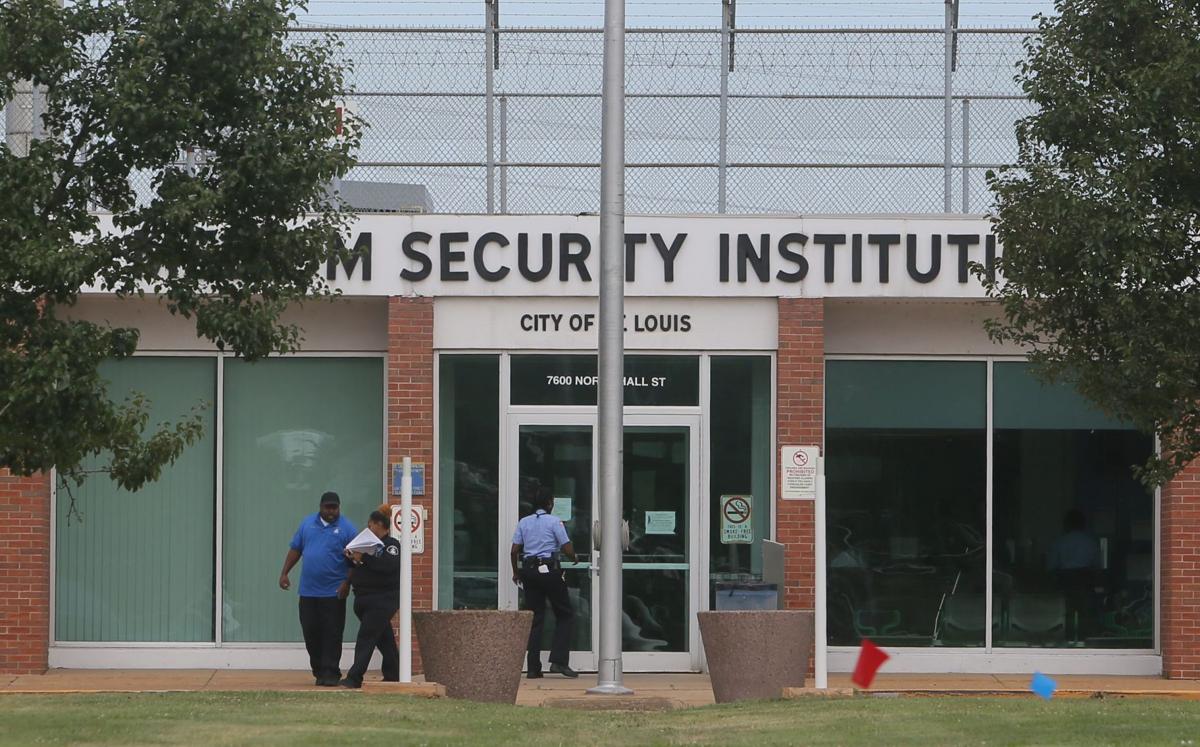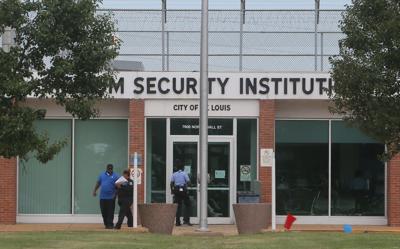ST. LOUIS╠² ŌĆö╠² An aldermanic committee on Tuesday cleared for floor debate board president Lewis ReedŌĆÖs plan aiming to close the city Medium Security Institution, also known as the workhouse, by the end of the year.
The measure would require Corrections Commissioner Dale Glass to submit a plan to shut down the facility, which is on Hall Street.
Glass, who is part of Mayor Lyda KrewsonŌĆÖs administration, told the Public Safety Committee heŌĆÖs an ŌĆ£anxious participantŌĆØ in the process and that he would do his best to provide the required information.
While Glass stopped short of endorsing the bill, he also didnŌĆÖt oppose it.
People are also reading…
He said the goal of only operating the main city jail downtown is something heŌĆÖs aspired to since he began working for the city in 2012. ŌĆ£Now itŌĆÖs worth a conversation because the numbers are where they are,ŌĆØ he said.
That referred to the gradual decline in prisoners at the workhouse, especially in recent months when judges released some of them in an effort to reduce the spread of the coronavirus.
But Glass also cautioned that the city has to consider various issues, such as the fact that women inmates canŌĆÖt be housed in the same areas as men at the downtown jail.
Another, he said, is the number of people held temporarily in holding cells who arenŌĆÖt included in the daily inmate count.
Jacob Long, KrewsonŌĆÖs spokesman, said in an interview that while the bill is consistent with the direction the mayor has been moving in, itŌĆÖs not known yet if a shutdown by Dec. 31 is realistic.
Reed said his bill would protect citizens and ŌĆ£also create a more humane and more sustainable systemŌĆØ by helping prepare people held for minor crimes at the workhouse for re-entering society.
The measure calls for spending some money saved by closing the workhouse on that purpose and on anti-poverty efforts in high-crime neighborhoods.
The committee agreed to several amendments proposed by Reed, including some recommended by the Close the Workhouse campaign that has been active for several years.
One amendment renames a proposed city Division of Recidivism Reduction as the Division of Supportive Re-Entry.
Another change calls for the division to help workhouse detainees whose contact with the criminal legal system resulted from substance abuse, poverty and other social determinants of crime. ReedŌĆÖs original bill only listed mental illness.
The measure was endorsed by the committee unanimously although three members said they worried that it may have too aggressive a timeline for closing the workhouse. The measure requires two-thirds majority by the full board because it would create a new city division.
A related Reed bill is pending before another committee.╠²









